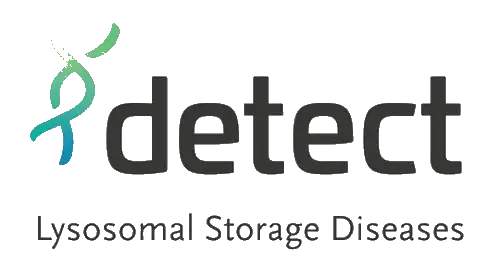
In partnership with AstraZeneca, this program provides no-cost genetic testing to detect TTR gene variants that may lead to hereditary transthyretin amyloidosis (hATTR), a protein misfolding disorder in which deposition of TTR amyloid aggregates causes multisystem organ dysfunction. Proper identification of an underlying pathogenic TTR gene variant is critically important for patients, their offspring, and siblings. No-cost TTR gene testing is available to patients in the US with a clinical diagnosis of ATTR amyloidosis or a family history of hATTR. TTR gene testing for patients meeting eligibility criteria must be ordered by a qualified healthcare provider.


Xeris Pharmaceuticals® has partnered with Invitae to offer a periodic paralysis gene panel test for those who have episodic muscle weakness or temporary paralysis provoked by common triggers for primary hyperkalemic or hypokalemic periodic paralysis.



The Detect Lysosomal Storage Diseases Program offered by Invitae is designed to facilitate the diagnosis of lysosomal storage disorders (LSDs) by providing no-cost genetic testing to individuals who exhibit symptoms suggestive of LSDs. This program aims to identify the specific genetic mutations responsible for these conditions, enhancing the accuracy of diagnoses and enabling more targeted treatment approaches. By offering comprehensive genetic testing and counseling at no charge, Invitae supports healthcare providers in confirming suspected cases of LSDs, which can be crucial for early intervention and optimal disease management. This initiative not only assists in individual patient care but also contributes to broader efforts to understand the prevalence and genetic diversity of LSDs.


The Detect Muscular Dystrophy program, sponsored by the Muscular Dystrophy Association (MDA) and Sarepta Therapeutics, offers genetic testing and counseling at no cost to individuals who may have symptoms of muscular dystrophy but have not yet received a genetic diagnosis. This initiative aims to identify specific genetic mutations associated with various types of muscular dystrophies, such as Duchenne muscular dystrophy (DMD) and Becker muscular dystrophy (BMD). By providing access to comprehensive genetic testing and follow-up counseling, the program helps patients and their families understand their condition better, potentially leading to more targeted and effective treatments. It also supports wider research efforts by gathering valuable data on the prevalence and genetic variability of muscular dystrophies.

